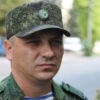Several journalists in Pakistan have come forward to reveal the near-blanket censorship imposed on coverage of the Pakistan Tehreek-e-Insaf (PTI) party ahead of the nation’s February 8 elections. This censorship is allegedly being imposed by the country’s powerful military, which has had a significant influence over Pakistan’s governance for several decades. Journalists have reported receiving instructions to not use PTI flags or mention the party’s affiliation with candidates backed by the party. Instead, they are instructed to identify the candidates as “independent”. The PTI, founded by former Prime Minister Imran Khan, is considered one of the country’s most popular political parties. However, Khan has faced imprisonment since 2023 on corruption and leaking state secrets charges, which he claims are politically motivated.
The crackdown on the PTI began after Khan lost a confidence vote in parliament in 2022. Many PTI members were arrested, and party leaders faced pressure to quit. The Election Commission of Pakistan rejected the nomination papers of Khan and several party leaders for the upcoming elections, and the Supreme Court upheld the decision to strip the PTI of its election symbol, a cricket bat. Pakistani media was already prohibited from reporting Khan’s speeches or rallies on TV, but now the restrictions on PTI coverage have become even more extensive.
Journalists who spoke to reporters revealed that they have received instructions to remove PTI references from visuals, graphics, and talking points, and to identify PTI candidates solely as independents. Multiple journalists have chosen to remain anonymous due to fear of reprisals. The government and military deny imposing such restrictions, but journalists argue that this censorship is part of a longstanding pattern in Pakistan. In the past, other political parties have faced similar censorship.
The situation is further complicated by the lack of clarity and arbitrary nature of the censorship. Journalists have reported confusion over what they can and cannot say about the PTI and Imran Khan. Some journalists have faced charges of sedition or been detained without explanation. The tentacles of censorship have also extended to the internet and social media, which is popular among PTI’s younger supporters. Social media apps such as Facebook, YouTube, Instagram, TikTok, and X have faced restrictions coinciding with PTI events. Government officials have indicated that internet access may be restricted on election day, which could severely impact journalists’ coverage and limit information integrity.
The targeting of Khan and the PTI has created an electoral coverage that lacks the festive atmosphere of previous campaigns. Journalists have reported being instructed to drop segments that show PTI support, while promoting other parties, such as the Pakistan Muslim League-Nawaz (PMLN), led by former Prime Minister Nawaz Sharif. Journalists fear that as the election day approaches, these restrictions will intensify, further sidelining the PTI.
The senior official of a Lahore-based news channel stated that while there was manipulation in the run-up to the 2018 elections, the current situation is far worse, with no level playing field. The latest instructions to remove PTI candidate’s party affiliation and the PTI flag aim to erase the party’s presence, leaving voters unaware of who the PTI candidate is.
It is important to note that the government and military deny imposing any censorship, and the Pakistan Electronic Media Regulatory Authority (PEMRA) has not issued any official statement regarding restrictions on coverage. However, journalists and human rights organizations argue that this is part of a longstanding pattern of censorship in Pakistan, which undermines democratic principles and freedom of expression.
In conclusion, journalists in Pakistan have raised concerns about the near-blanket censorship imposed on PTI coverage ahead of the country’s February 8 elections. They claim to have received instructions to not use PTI flags or mention party affiliations of PTI-backed candidates. The government and military deny these allegations, but journalists argue that censorship has been a longstanding issue in the country. The targeting of the PTI has led to a lopsided electoral coverage, with concerns about internet restrictions on election day further impacting journalists’ ability to cover the elections effectively.




